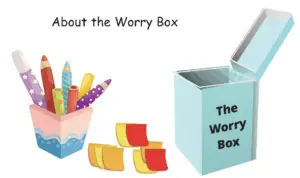“No one fights dirtier or more brutally than blood; only family knows it’s own weaknesses, the exact placement of the heart. The tragedy is that one can still live with the force of hatred, feel infuriated that once you are born to another, that kinship lasts through life and death, immutable, unchanging, no matter how great the misdeed or betrayal. Blood cannot be denied, and perhaps that’s why we fight tooth and claw, because we cannot—being only human—put asunder what God has joined together.” Whitney Otto
“An eye for an eye will only make the whole world blind.” Mahatma Gandhi
“Whenever you are confronted with an opponent. Conquer him with love.” Mahatma Gandhi
I think we might be low on encouragement. We all need it and want it, yet most of us most of the time never get it. Are we all so deprived, or tired that we can’t muster any kind words for each other. I know there are so many times I’d rather lash out at someone, to diffuse my anger. It might be that a bit of encouragement would surprise us, and disarm us in the process.
It is nice to be noticed
How often do workers get any kind of compliments? They hardly see the boss, unless of course, something went wrong. How is it we can attend the meeting to criticize, but not be there to compliment. Sometimes it feels good when someone acknowledges that we are doing a great job. It makes us feel noticed. In this great big world, with more friends than we can count, it is nice to be noticed.
The boss is busy with numerous e-mails, calls appointments, and meetings with others. Finding the time for one more thing just doesn’t fit into his schedule. When others do mess up perhaps, they were sick, had a duty call for the baby or kids, or health issues kept them away. We can’t be available and suitable every minute of every day. Those are the times we hassle ourselves about doing a better job. The truth is we are not machines, and we have emotional and physical issues to confront. How about friends who we rely on for boosts to the ego. Of course, they might be burdened themselves and have nothing left for us. I have been there when you run out of close friends to call when you are experiencing disappointment and defeat.
We need each other
Those times when we have only ourselves for comfort, appear to be scary. We have come to depend on others for support and answers. Perhaps that is why there are so many drugs out on the market. Without the personal presence of others, we rely on medicine to alter the pain. The importance of our relationships can’t be overestimated. For good or bad here just are, and always will be those moments, when we want to let someone else steer the boat, and make the decisions. One can call it tiredness, insecurity, dependent, or even vulnerability, but the fact remains that we need each other. Facing that reality, and comprehending that it is not a detriment to our character, brings acceptance to our relationships as well as to ourselves.
Wives and husbands take their turns at being disappointing. When we least expect it, we find ourselves disappointed by them, and the crushing feeling is painful. Sometimes it happens because they misunderstood what we were trying to say. Other times we misinterpret what they are attempting to explain. Whether we are half listening, tired, or in a bad mood, the result is a confusion which escalates. It turns into anger and causes an explosive atmosphere.
We only hear what we want to hear
Many times I have misconstrued, what others were attempting to explain. Just as many times I have miscalculated, another person’s response. Our humanity is so open to failures in emotional and practical issues. Often it is stated that we only hear what we want to hear. Maybe there is some truth in that statement. If I am in a sad mood, I take the words, “your work is okay,” to mean my work is lousy. On a good day, I would take the same words to imply, Hey, you are good, and the work is great.
On a very low day, I would only half-listen to what another was talking about. likely I would give a quick irrelevant answer, and in return get a curt remark back. I probably would take offense and walk away angry. My buddy would likely do the same, in the opposite direction. Upon arriving home, I might consider what just happened, and why. It would be hard to blame myself, but I am sure I would have no difficulty faulting another.
Hearing two different versions
That is why when one listens to an argument, it is like hearing two different versions. We see it from our own perspective. I bring my past experiences to the table, which differ from your past experiences. I suppose what I viewed between my parents, might also play into how I see our argument proceeding. The same is true for your opinions, which could be shadowed by your view is of the entanglement. I honestly think many of us have to unlearn the ways we were taught, to deal with problems. Many of us fall into the same patterns as our parents. Unless they were model citizens, we have some adjusting to do.
That is why disagreements can take so many turns in the road. We might find ourselves the victim in places we never meant to venture into. A simple remark can have a huge repertoire of emotions built into it. Unhappily we all learn the signposts in time and how to avoid them. It is almost amusing to watch a young couple disagree. They attempt to hold onto their dignity, and rising anger, until the bingo point of certain gestures, words or actions, that stifle calmness and release fury.
Love is learned behavior
Many times couples are lamenting their sadness over the disagreement and professing to do better the next time. Most of them will do better, because they learn how to drive the marriage mobile, and avoid the warning signs. All fights don’t end in disaster. Most of the arguments can lead to a discovery of the truth about each other. They realize also that they can’t behave like their parents because they are two different people. They also learn that the words spoken were not holding the rebuff they envisioned in their own minds. Love is learned behavior, and so too is fighting. It is so vital that we discover how to fight with the purpose of having a positive and loving outcome.
“Read it with sorrow and you will feel hate. Read it with anger and you will feel vengeful. Read it with paranoia and you will feel confusion. Read it with empathy and you will feel compassion.
Read it with love and you will feel flattery. Read it with hope and you will feel positive. Read it with humor and you will feel joy. Read it with God and you will feel the truth. Read it without bias and you will feel peace. Don’t read it at all and you will not feel a thing.” Shannon Adler“Before you can live a part of you has to die. You have to let go of what could have been, how you should have acted and what you wish you would have said differently. You have to accept that you can’t change the past experiences, opinions of others at that moment in time or outcomes from their choices or yours. When you finally recognize that truth then you will understand the true meaning of forgiveness of yourself and others. From this point you will finally be free.” Shannon L. Alder


